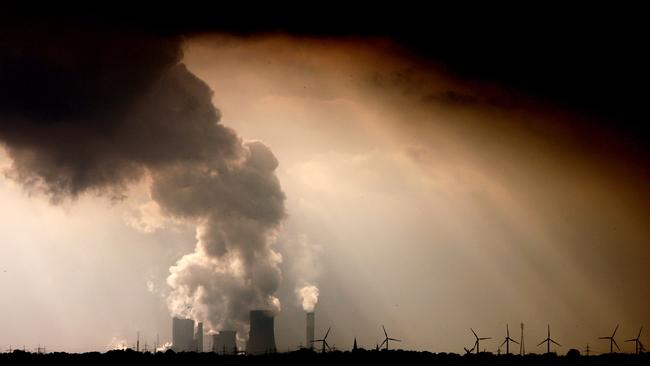ASX 100 leads way in climate-risk reporting and disclosure
Australia’s top 100 companies are leading the way in climate-risk reporting and disclosure.

Australia’s top 100 companies are leading the way in climate-risk reporting and disclosure, with the ASX 100 outperforming the world’s largest 250 businesses on multiple criteria despite trailing behind them just three years ago.
Research by KPMG global shows that less than half of the G250 — an index of the world’s largest companies — follow the internationally recognised recommendations of the Task Force on Climate-related Financial Disclosures (TCFD).
But supplementary research by KPMG Australia found that 58 per cent of ASX 100 firms are following the TCFD recommendations, up from 16 per cent in 2017.
Australian companies are especially prevalent in acknowledging climate change as a financial risk to their businesses, with 78 per cent making the acknowledgment in their annual report or separate climate report, compared to just 56 per cent of the G250.
It also means that Australia is second only to France in this regard, where 94 per cent of large companies have acknowledged the risks of climate change to their businesses. The construction materials and the mining companies on the ASX 100 are the most bullish on this subject, with 100 per cent of them acknowledging the risks of climate change to their business.
KPMG Australian partner in charge of climate change and sustainability Adrian King said the gains made by Australian companies in this field came from increased stakeholder pressure.
“It’s a combination of pressure to disclose from regulators, investors and broader society,” Mr King told The Australian.
“Since 2017, APRA and ASIC have issued guidance on understanding and managing financial risks of climate change, and last year the revised ASX Corporate Governance Principles also put more emphasis on companies’ reporting in this area.
“Investors are also pushing for more and better reporting on climate risks.
“All the while, society is expecting companies to be better stewards – in Australia that was particularly affected by the devastating 2019-20 summer bushfires.”
Areas where ASX 100 companies are falling behind their global counterparts include reporting the impacts of climate change using scenario analysis and reporting science-based targets showing how they intend to transition to net zero carbon emissions. Mr King, who is also KPMG’s global chair of sustainability, climate change and ESG services, said just 20 per cent of ASX 100 companies include scenario analysis in their reporting, compared to 22 per cent of the G250.
Furthermore, just 17 per cent of companies report in line with a science-based target for transitioning to net zero emissions, compared to 27 per cent of the G250.
“67 per cent (of ASX 100 companies) are setting carbon targets, but only 17 per cent have science-based targets,” Mr King said.
“This is where we need to see an improvement in Australia.
“While we have seen improvement in target setting broadly, carbon targets need to align with the climate science so that they are going to have the desired impact.”
The study shows that in Australia the mining, financial services and construction sectors are the most in-tune to climate risks, with between 50 to 60 per cent of ASX 100 companies in these industries openly acknowledging the impacts climate change could have on their businesses.
This is a reversal from the global trend where the telecommunications, media and tech sectors are often on the front foot in this regard.
Earlier this month, the United Kingdom announced that British companies will be compelled to report detailed information on climate risks and opportunities by 2025.
Mr King said: “As we have seen, many Australian companies are already acting on climate risk, and taking their lead from the market and regulators, but ultimately legislation is often required for the slower-moving respondents on any issue.
“We are already seeing climate reporting legislation occur in other jurisdictions such as in the UK and New Zealand but we will have to see if it happens here.”





To join the conversation, please log in. Don't have an account? Register
Join the conversation, you are commenting as Logout